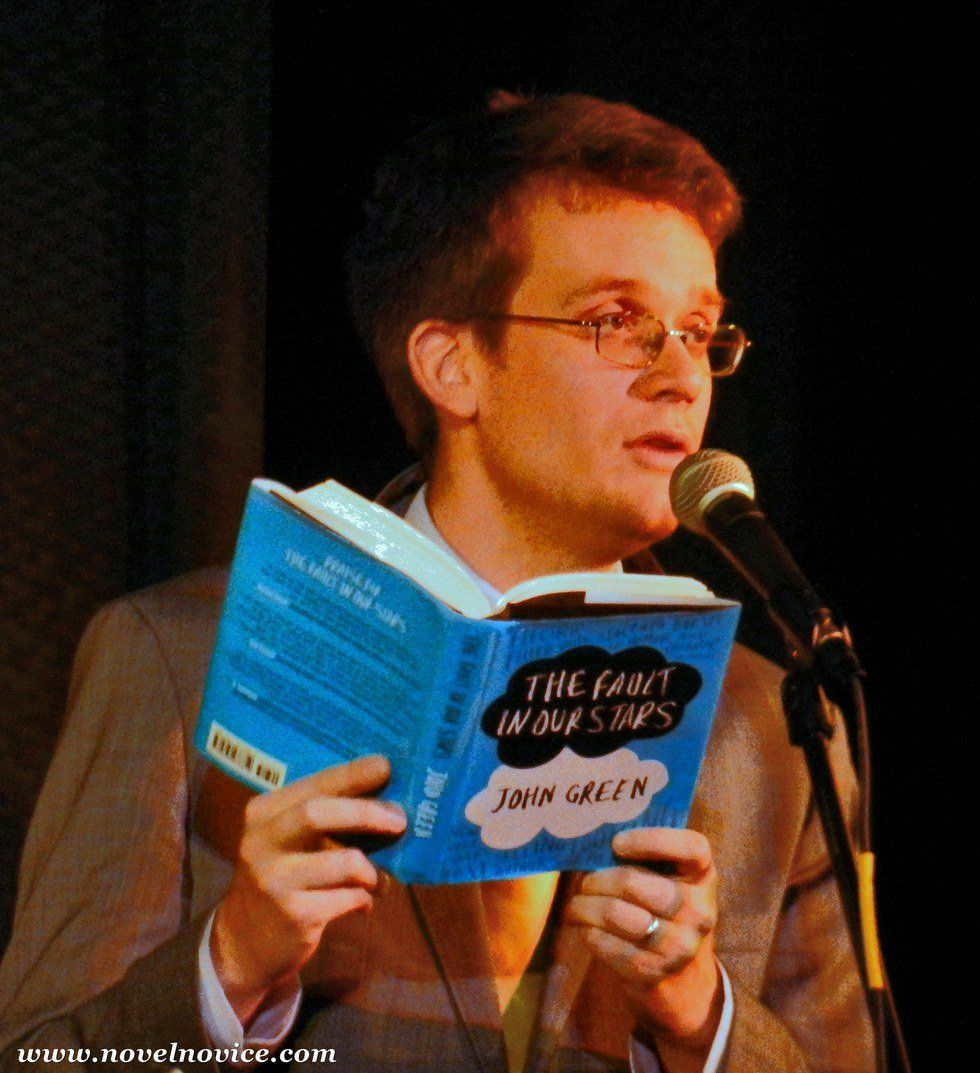In recent years, John Green has acquired a mild level of fame due to his written novels, the film adaptations for two of those novels, the vlogbrothers YouTube channel (shared with his brother, Hank) and the CrashCourse YouTube channel (co-created with Hank, as well). One could say John has become a sort of celebrity. There are few people with exposure to the internet or television who haven't at least heard of his story "The Fault in Our Stars." Many a teenager found themselves sniffling into a handful of tissues as they read the book or watched the movie. However, not many people outside the age of 13 to 20 have taken the time to read "The Fault in Our Stars" or any of John's other books. Sure, his novels are placed in the category of Young Adult Fiction, but they brush on deep topics that people of all ages should take the time to hear and understand.
Take "The Fault in Our Stars" for example, since it is the most well-known one of John's stories. Not only does this book deal with huge issues like cancer and death, but it also plays with the idea of the individual legacies everyone leaves behind. Some people want to escape the oblivion of death by leaving behind a memorable act or creation. Others choose to see nothingness as inevitable, so they make decisions and live life with little ambition. Witnessing characters that struggle with these conflicting ideas makes one question their own existence in a way. One starts to realize that, despite the inescapable extinction of humankind looming in the distant future, there is a meaning to life. However, it isn't about having the honor of going down in history, but rather about giving a meaning or goal to your own life that brings the best for you and those around you. In my opinion, that is a lesson everyone (regardless of age) should learn.
The same goes for John's other books, like "Paper Towns" (which is my personal favorite). This story is generally portrayed as a tale of a lovestruck boy searching for the girl of his dreams, but the reality of this book goes far deeper than that. Vaguely put, "Paper Towns" gives readers a lesson on how we as humans see and understand each other. When looking at others, we criticize those we dislike and worship those we admire, but in doing that we are refusing to acknowledge the fact that those people are complex, emotional humans just like ourselves. In treating them as anything less than human, we are hurting both them and ourselves. Again, this is something I believe people of all ages should learn.
John Green doesn't just create well-written, entertaining, heart-wrenching novels; he sees the world in an intellectual and unique way and brings that viewpoint into his stories in order to open the eyes of the readers to the world around them. People of all ages should read his books for these insights into human consciousness alone. The witty characters and captivating storylines are just the icing on the cake.




















